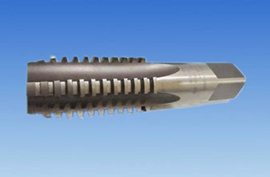Acme thread taps are essential tools in any machine shop, enabling precise internal threading for components used across multiple industries—from manufacturing to automotive and aerospace. However, even the highest-quality Acme thread taps, like those provided by Gaugestools, require regular maintenance to ensure optimal performance, accuracy, and longevity.
Improper care or neglect can lead to dull edges, inaccurate threads, increased wear, and even tool breakage. In this blog, we’ll share expert maintenance tips that will help you get the most out of your Acme thread tap investment.
Understanding the Importance of Tap Maintenance
Taps, especially Acme thread taps with their unique thread profile and cutting edges, work under significant mechanical stress. These tools must perform consistently to ensure clean, uniform threads without damaging the workpiece. A poorly maintained tap can lead to costly production errors, machine downtime, and premature tool replacement.
By implementing a few simple maintenance practices, you can:
- Extend the life of your tap
- Improve threading accuracy and finish
- Reduce manufacturing defects
- Lower long-term tool costs
Let’s take a closer look at the essential care tips every machinist or engineer should follow.
1. Use Proper Lubrication
Lubrication plays a critical role in the performance and lifespan of your Acme thread tap. Thread tapping generates heat and friction, which can dull or damage the tap over time. Using the right cutting fluid:
- Reduces heat build-up
- Improves chip evacuation
- Prevents galling and material adhesion
- Enhances thread surface finish
Tip: Always choose a lubricant suitable for the material you’re threading (e.g., oil-based lubricants for steel, water-based for aluminium).
2. Clean After Every Use
A common mistake is storing taps without cleaning them properly. Metal shavings, oil, and residue can cling to the cutting edges and flutes, leading to corrosion or dullness.
Steps to clean your tap:
- Use a small wire brush or compressed air to remove chips and debris.
- Wipe down the surface with a lint-free cloth.
- Apply a light coat of rust-preventative oil before storage.
Warning: Avoid using harsh chemicals that may corrode or damage the tap’s surface.
3. Inspect for Wear and Damage
Regular inspection is essential to catch early signs of wear before it affects the quality of your threads. Look out for:
- Chipped or broken cutting edges
- Worn threads
- Dullness or loss of shine on flutes
- Buildup of material between threads
Using a worn-out tap can compromise thread integrity, requiring rework or scrap. If you notice any of the above signs, it may be time to regrind or replace the tap.
4. Store Taps Properly
Storage conditions play a big role in preserving the life of your Acme thread taps. Taps left exposed to moisture, dust, or other tools are prone to corrosion and accidental damage.
Storage tips:
- Use dedicated tap holders or storage boxes with individual slots.
- Keep taps in a dry, temperature-controlled environment.
- Avoid stacking taps directly on top of one another.
Gaugestools recommends investing in a storage system that protects the cutting edges and keeps your tools organised.
5. Use the Right Tap for the Job
Not all Acme thread taps are designed for the same applications. Using the wrong tap type (e.g., hand tap for a machine operation or a tap made for soft metals on hardened steel) can quickly lead to tool failure.
Ensure you’re using the right:
- Tap material (e.g., HSS, cobalt)
- Thread size and pitch
- Tap type (hand, spiral point, spiral flute, etc.)
Consult the Gaugestools product catalogue or speak to one of our technical advisors to match your application with the right tap.
6. Avoid Over-Torquing
Excessive force during tapping can damage both the tap and the workpiece. Over-torquing leads to tool breakage, especially in blind hole applications where chip evacuation is limited.
Use a torque-limiting tool holder or tap collet with built-in clutch to control force and reduce the risk of breakage. This is especially useful in CNC applications where tool strain may go unnoticed until failure occurs.
7. Monitor Chip Evacuation
One of the most overlooked aspects of tap maintenance is managing chip flow. Chips that build up in the flutes can jam the tap, distort threads, or cause breakage.
Tips for better chip evacuation:
- Use spiral flute taps for blind holes.
- Use spiral point taps for through holes.
- Apply coolant or compressed air to assist chip removal.
Poor chip removal is one of the leading causes of tap damage—especially with the deeper and wider thread forms like Acme.
8. Regrind When Necessary
Rather than replacing a slightly worn Acme thread tap, consider having it professionally reground. Regrinding restores the cutting edges and saves on tool replacement costs.
However, not all taps are worth regrinding. Taps with severe damage or multiple regrinds may no longer maintain their original geometry or strength. Work with a trusted regrinding service to evaluate tap condition.
Conclusion
Acme thread taps are vital tools in precision machining, but they won’t perform at their best without proper care. Regular maintenance, from cleaning and inspection to correct usage and storage, is key to keeping your taps sharp, reliable, and cost-effective. At Gaugestools, we not only provide premium-grade Acme thread taps but also support our clients with the knowledge they need to get the most from their tooling investment. Whether you’re tapping soft metals or heavy-duty steel, our expert-designed taps deliver performance you can count on—job after job. Explore our full range of Acme thread taps at Gaugestools and keep your operations running sharp and smooth.





















